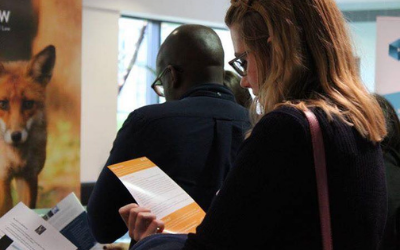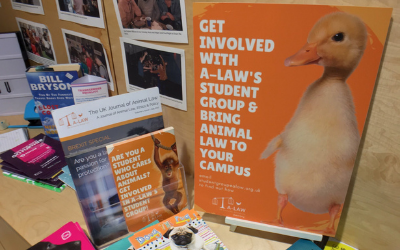The law as a driving force for animal welfare reform
Alan Bates, A-LAW Legal Policy Director
As well as Parliamentary law reform, the English courts can have a role to play in protecting the rights and interests of animals. The most powerful tool is judicial review, by which a person with “sufficient interest” (or “standing”) in a decision of a public authority can challenge the legality of that decision on the grounds that the decision is unreasonable, the correct procedures have not been followed before the decision was taken, or the decision is for some other reason outside of the decision- maker’s proper sphere of discretion.
The “parties” with the most direct interest in animal welfare are, of course, animals, who cannot litigate in their own names. The opportunity is now there, and has been there for some time, for humans concerned about animal welfare, either as individuals or groups, to challenge decisions affecting animals effectively on their behalves.
Although animal welfare groups have been slower than environmental groups in realising this potential, the gap is now being closed. A number of cases illustrate the increasing frequency with which “animal law” cases are now coming before both the English and European courts. For example:
The most recent is a claim brought by Chancepixies, an independent charity who took legal action against a council responsible for licensing a puppy breeding establishment. Chancepixies were granted permission to bring judicial review proceedings. The Council conceded that there were flaws in the licensing process for two dog breeding licences, which were subsequently withdrawn. The licensing process will begin again and it remains to be seen whether a new licence will be granted and if so, whether it will be under the same terms.
Another case brought by Cruelty Free International (then, the BUAV), illustrates the potential for laws not directly relating to animal welfare to be used in the interests of animals. In that case the BUAV challenged the decision of the Secretary of State to grant planning permission, in the teeth of the conclusions of his own planning inspector, to Cambridge University for the building of a new research facility in which painful experiments were to be conducted on primates. Although the challenge failed, Cambridge University abandoned the project.
Finally, there was the major victory for animal welfare campaigners in the European Court of Justice when the Court dismissed a challenge by France to amendments to the Cosmetics Directive which banned the importation into the EU of cosmetics which have been tested on animals. The French challenge relied heavily on international free trade laws, again highlighting the particular relevance of non-UK law in the animal welfare field. Litigation is likely to be an especially important weapon where the WTO Agreement is concerned, not least because of the difficulties animal welfare groups face in influencing the “hard law” provided by the text of the Agreement itself.
There have been disappointing cases too. One of these was the CIWF case, in which the group Compassion in World Farming challenged the system of breeding broiler chickens. Over the last 30 years, selective breeding has halved the time it takes for a broiler chick to reach its 2 kg slaughter weight. As a result, broiler chickens now reach slaughter weight considerably earlier than the time when they reach sexual maturity. The industry’s solution is to semi- starve the broiler chickens that comprise the breeding flock in order to avoid them suffering from other welfare problems from being grossly overweight. CIWF sought judicial review of the Secretary of State’s refusal to take action to stop the chronic hunger to which breeder broilers were being subjected. Although the claim failed on the facts (there was insufficient evidence to show that the breeder broilers were truly “starving”), both the High Court and the Court of Appeal recognised that the case raised serious issues.
These cases illustrate the great potential for animal welfare to be advanced in the courts, but also illustrate that victory in any particular case can never be assured; litigation is intrinsically an uncertain business. This is, of course, true of all animal welfare campaigning – victory is never achieved overnight, there will be setbacks, and it is persistence that pays off. The enthusiasm of animal welfare groups to use the law must not be suffocated by the promotion of unrealistic expectations that are subsequently dashed. The “legal route” is not an alternative to other forms of campaigning, but should be seen as another (important) tool within the animal protection toolkit. However, the risks of litigation (with each bout being perceived as a win/lose struggle), the lack of access to legal resources, and the costs of obtaining even initial advice have often discouraged animal welfare organisations from making use of that tool.
The UK Centre for Animal Law (A-LAW) exists to change that. It is a group which exists to promote “animal law” in all its manifestations, to share knowledge and expertise, and to be a resource for campaigners and animal welfare organisations. We hope that animal welfare groups will, like environmental groups, come to regard a consideration of the possibility of a legal challenge as an integral part of planning any campaign. The suffering of animals has already found a voice in the media and in Parliament. Now they are finding a voice in the courtroom, and A-LAW is turning up the volume.






